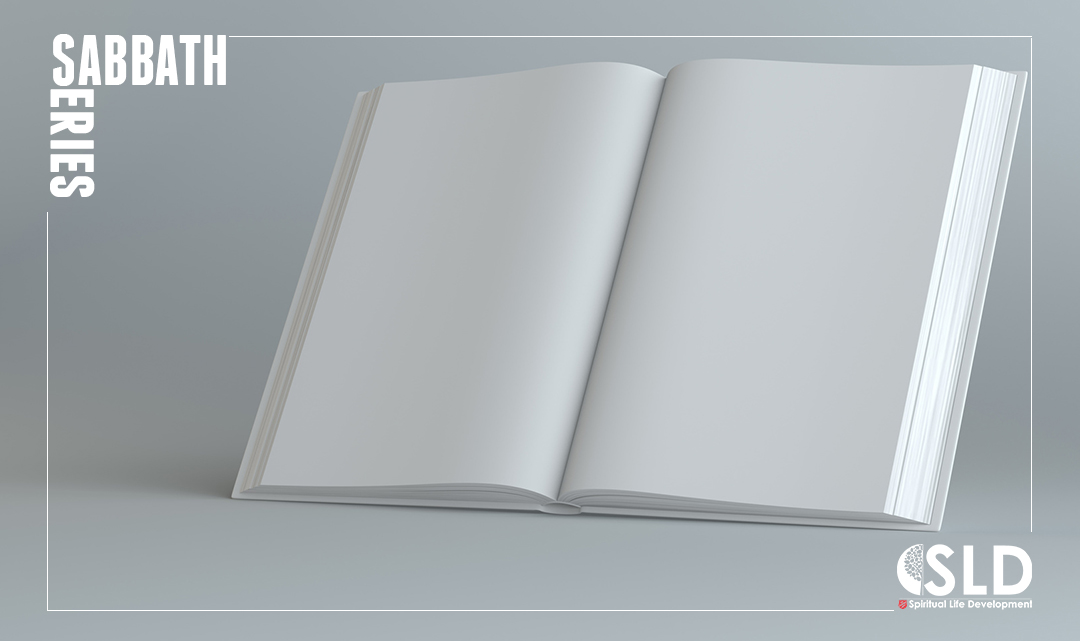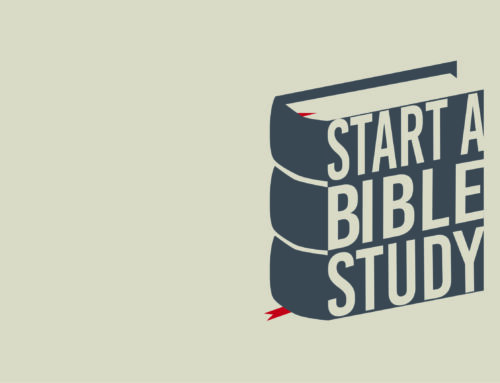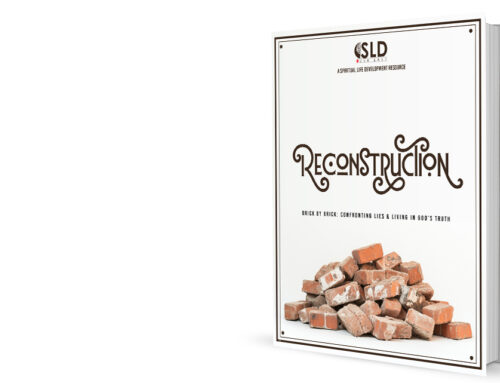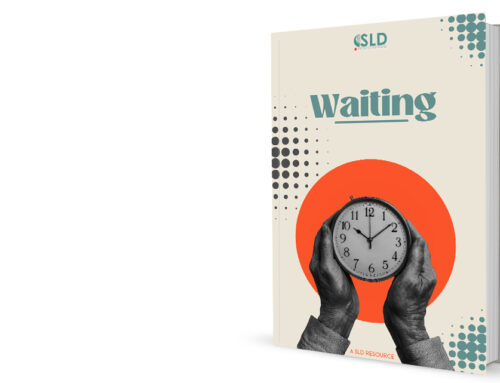 My daughter and I enjoy sitting on the couch and together. A few weeks ago, she got to the last page in the chapter, close to 80% blank, and she said, “Dad, isn’t this a waste of space? They could start the next chapter right here and get more words on the page and use less paper.” How pragmatic.
My daughter and I enjoy sitting on the couch and together. A few weeks ago, she got to the last page in the chapter, close to 80% blank, and she said, “Dad, isn’t this a waste of space? They could start the next chapter right here and get more words on the page and use less paper.” How pragmatic.
“I think it gives us a chance to think about what we’ve just read, sweetie.”
“That makes sense.” and we went back to reading.
We need the space at the end of the chapter. We need space between them to think, to rest, to intentionally turn the page to the next one, and the one after that, and the one after that.
We need space between the chapter, to rest, to intentionally turn the page to the next one, and the one after that, and the one after that.
Here, we turn the page to the final chapter of our Sabbath series. Rather than attempt to compose a treatise on “The Right Way to Do Sabbath,” it has been our hope to present to you, the faithful reader, several perspectives on Sabbath and to challenge you to present yourself, your life and your ministry willing and available to the Lord to experience this ancient practice in some meaningful way.
The Old Testament scriptures are clear on the importance of the Sabbath as both a model of ceasing (Genesis 2:1-3) and an opportunity to receive from the Lord (Exodus 16). Yet even in that clarity, practicing Sabbath evolved into a legalistically enforced experience by the time Jesus’ ministry began. The heart of Sabbath had been lost. What was given to us to be a life-giving reprieve became a platform of over-eager judgment and punishment.
This is always the danger with an enforcement approach to religion. It can become a “My way or the highway” approach to faith. We’ve seen that mentality divide congregations, communities and entire denominations. If we are to be truly honest with ourselves, we are just as likely to fall into the same sort of traps as individuals or corporately.
Each of the synoptic gospels record Jesus asking a question, “I ask you, which is lawful on the Sabbath: to do good or to do evil, to save life or to destroy it?” (Matthew 12, Mark 3, Luke 6) What do we do when the living of the law and the heart of the law have grown so apart that they contradict one another? Do we even see it?
Throughout the gatherings and processes of the Sabbath Keeping Task Force, as various perspectives were presented, illuminations pursued and discussions took place, two things were clear to the Task Force. 1) Sabbath as a Biblical mandate has a modern context and modern consequences, and 2) Sabbath Keeping cannot be legislated at the administrative level.
To the first, it would be easy to toss aside Sabbath-keeping, as has been done in the past, whether practically in a “Sunday for Sabbath” trade-off or theologically, as has been done in Orthodox traditions, inferred by Ignatius. Further, as we attempt to fully engage the gospel in our lives and ministries, all too often we only feel valued or valuable when we are working, busy, behind, exhausted or all of the above. The tendency is to believe that if we seem rested, it will appear that we should be accomplishing more or if we seem calm, we’re clearly missing something.
Yet so many are forced into a Sabbath. As I have read about Sabbath and consulted several books from several traditions, there’s a thought that keeps emerging. In one conversation, this unattributed quote was shared with me as being an ancient anonymous Rabbinical teaching, “If you do not take the Sabbath, the Sabbath will take you.” Our own Samuel Logan Brengle found a spiritual breakthrough once through injury and recuperation and again through an extended hospital stay after a complete physical breakdown (Christine Faragher, Other Voices, Salvo Publishing, Australian Southern Territory, Melbourne, Australia. 2010).
Ruth Haley Barton shares a similar story through her teaching on Discernment about overworking in ministry and being taken by Sabbath. In her case, she was hit by a van and run over while riding her bike home one day. Miraculously, she sustained a few bumps and bruises and no broken bones. The emotional trauma was the worst part of it. Within a few days, she was back at it, going-going-going. She describes her life at that point with the word “overbusy.” This experience, through the advice of a close friend whose words led her to a profound Sabbath revelation. “Ruth, you know you should take a break. You did just get run over by a car.”
Major Faith Miller has written of her own similar experiences with Sabbath in this very series. There are many out there who will only find the relief of Sabbath after they’ve hit the wall, burned out or crashed. Don’t wait for it. Accept the invitation to experience Sabbath. What will it take for you to enter into this holy practice in consistent and meaningful ways?
Which brings us to the second thought, the legislation in some way of Sabbath. This must be avoided. As an organization and as individuals, we must find the way to maintain sacred space without creating a mandatory assignment. God calls us toward fullness in Him that is accomplished through submission and His subsequent blessing, as opposed to our tendency toward guilt and our subsequent effort. When we accept and embrace Sabbath as an invitation and opportunity for rhythm in our lives, we will experience Sabbath by honoring what Sabbath accomplishes: a cessation of work and reflection on what God has been, is doing, and will continue to do.
Throughout church history practicing the Sabbath has waxed and waned, often with expressions in the extremes, illustrated by the Eastern church in the fourth century and the Irish church of the sixth century. Today, the best example of literal Sabbatarianism, would be the Seventh-day Adventists. Yet in each expression, each era is marked by legalistic tendencies. Can an expression of worship be fully engaged with if is practiced in fear of consequence or solely to avoid punishment? Does that act of worship then truly “do good” or “save life” or does it become something else entirely?
We should not replace Sabbath with ministry work. In that, we do not cease. The grind simply continues. It is best to avoid mistaking Sabbath as a “day off” from the work of ministry and fill it with other efforts like catching up on laundry, cleaning the garage, errands or household chores. Again, we do not cease, and like the Israelites in the wilderness, we will lose sight of His efforts amidst the frenetic busy-ness of our own.
So it is with these words, the “work” of studying Sabbath through this series is complete, for now. The series draws to a close and as on that seventh day, we can look back at the posts, the thoughts, the heart, the invitations and the opportunities that are contained within and know that they are good.
We need space between the chapter, to rest, to intentionally turn the page to the next one, and the one after that, and the one after that.
Sabbath is good. The space of ceasing is good. It is necessary. We need that space at the end of the chapter. It gives us the chance to reflect before turning the page. We need the empty space before we go on. Not so that it remains empty, but so that God can do what He does best and fill the empty space abundantly. He fills the space not with words, but with presence. Let us willingly and cheerfully give Him some empty, yet sacred space to fill in our lives.
Blessings as you, faithful reader, take these words and the invitation to Sabbath with God to heart.
Written by Chris Stoker, Spiritual Life Development Department
For more in the Sabbath Series, click here.




